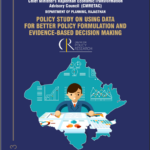
PAISA Track: Taking PAISA to parents- learnings from Andhra Pradesh
9 December 2010
PAISA in Andhra Pradesh (AP) is being implemented with a slight twist – one which has taught us a lot! The district administration (read district collector) of Hyderabad city has in the last few months expressed a strong interest in strengthening school management committees (SMC) as mandated under the Right to Education Act. Hyderabad is one of the few districts in the country where any serious effort is being made to implement this provision of the RTE. To facilitate this process, the collector connected with our PAISA partner ASER/ Pratham. Naturally, given PAISA’s own interest in this area, we got involved. The first step was to quite simply get the meetings started. One community mobilizer was assigned to 12 schools (12 SMCs) and tasked with encouraging parents to attend meetings and to facilitate discussions at these meetings. This direct engagement saw some quick results. Parents began to show up – the numbers rose from 5 to 10 to 15 and after a point the numbers were large enough even for the local municipal councilors to show up at the meetings. The meetings tended largely to focus on issues around drop outs, teacher student interaction with the councilors and sundry government officials giving lectures. Our biggest learning from this exercise was that given the right kind of input, parents are interested in engaging with the school and intensive mobilization, therefore does yield results.
Four months in to this exercise, the Hyderabad team began to wonder what next. That meetings were taking place was an important first step but for them to sustain, the meetings needed to have a concrete agenda and a concrete output.
The RTE mandates that all schools prepare an annual school development plan. And so we decided to extend the PAISA tool to the SMC’s to get them to start the planning process. The Hyderabad collector seemed enthused by the idea. In fact he was facing a related problem – the schools had been reporting a lot of underutilization (monies not being spent) and he thought this could be an opportunity to try and get the schools energized to spend. And so he did what he knew best – issued a series of orders mandating that all SMC meetings in December discuss school level funds (using formats that we developed) and make a plan to spend the unutilized money. We were excited (or at any rate I was excited). I thought that the orders would be our weapon to get this moving. So we teamed up the SMC mobilizers with our PAISA surveyors to go out and collect data on school funds to understand the state of the problem themselves. At the same time, we also prepared formats that required the school officials to share information on funds at the meetings and develop an action plan. To implement this, we organized the first round of PAISA trainings last week.
Post the training we did a small pilot in a school in Santosh Nagar, Hyderabad. The Pratham and PAISA teams arrived at the meeting armed with their formats and the government orders. But once the conversation began things started falling apart. The officials, particularly the Head Masters were simply not interested in the proceedings – they had to be there because of the government orders but they really didn’t see the need to engage the parents, most of whom for them were not aware of how to do complex administrative tasks like make plans. And as for me – they looked at me as though I was from Mars! The meeting didn’t lead to much but it left me convinced that if such interactions were to take place effectively, a lot can change. Here is an example – the parents complained that the biggest problem in the school was that the toilets were dirty and kids ended up coming home half way through school. The school claimed that they had a cleaner whom they paid Rs. 1,000 a month to but who came only twice a week. For a school with 750 kids enrolled, this was obviously not enough. So we asked the parents if they could find a solution – and they did. One parent volunteered to identify a sweeper that would come everyday to the school for that price. Immediate action!
The problem however is that the frontline officials remain unconvinced. And this is why we don’t see effective change on the ground. On paper, India looks like the most participatory democracy in the world. Scheme after scheme, government order after order mandate that people –whether through organized community groups or other means – must make plans and audit programs. The reality of course, is completely different. A good administrator will pass a progressive order but she will never spend time motivating her team to implement the order. This is exactly what is happening in Hyderabad. The collector seems to believe that his problems will be solved if his team implements his orders. But he doesn’t see the need to work with his team convincing them of his mission and carrying them with him. For me the greatest learning from Hyderabad PAISA is that change can only come if the foot soldiers, those on the frontlines are convinced of the need to for change and motivated to implement it.





